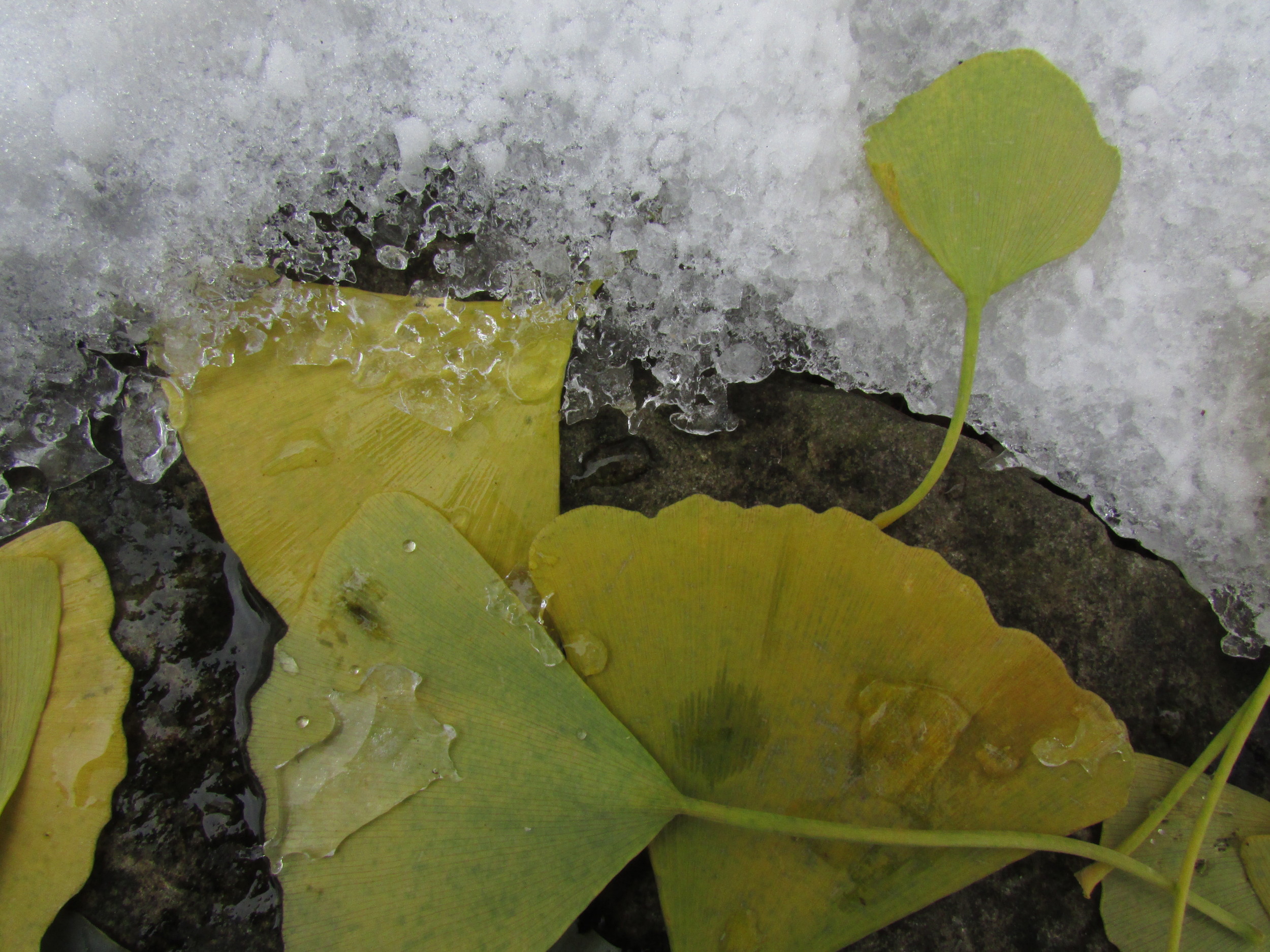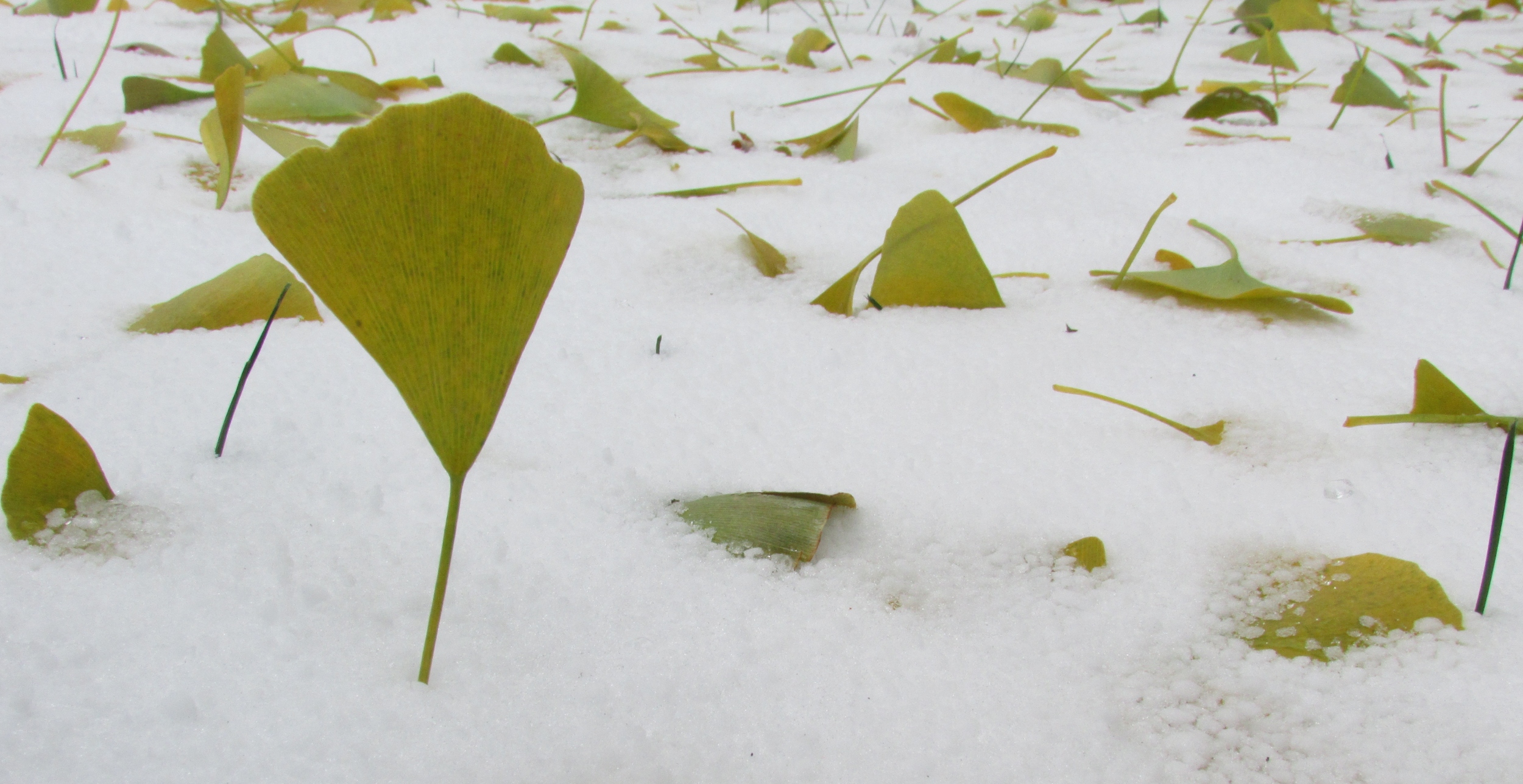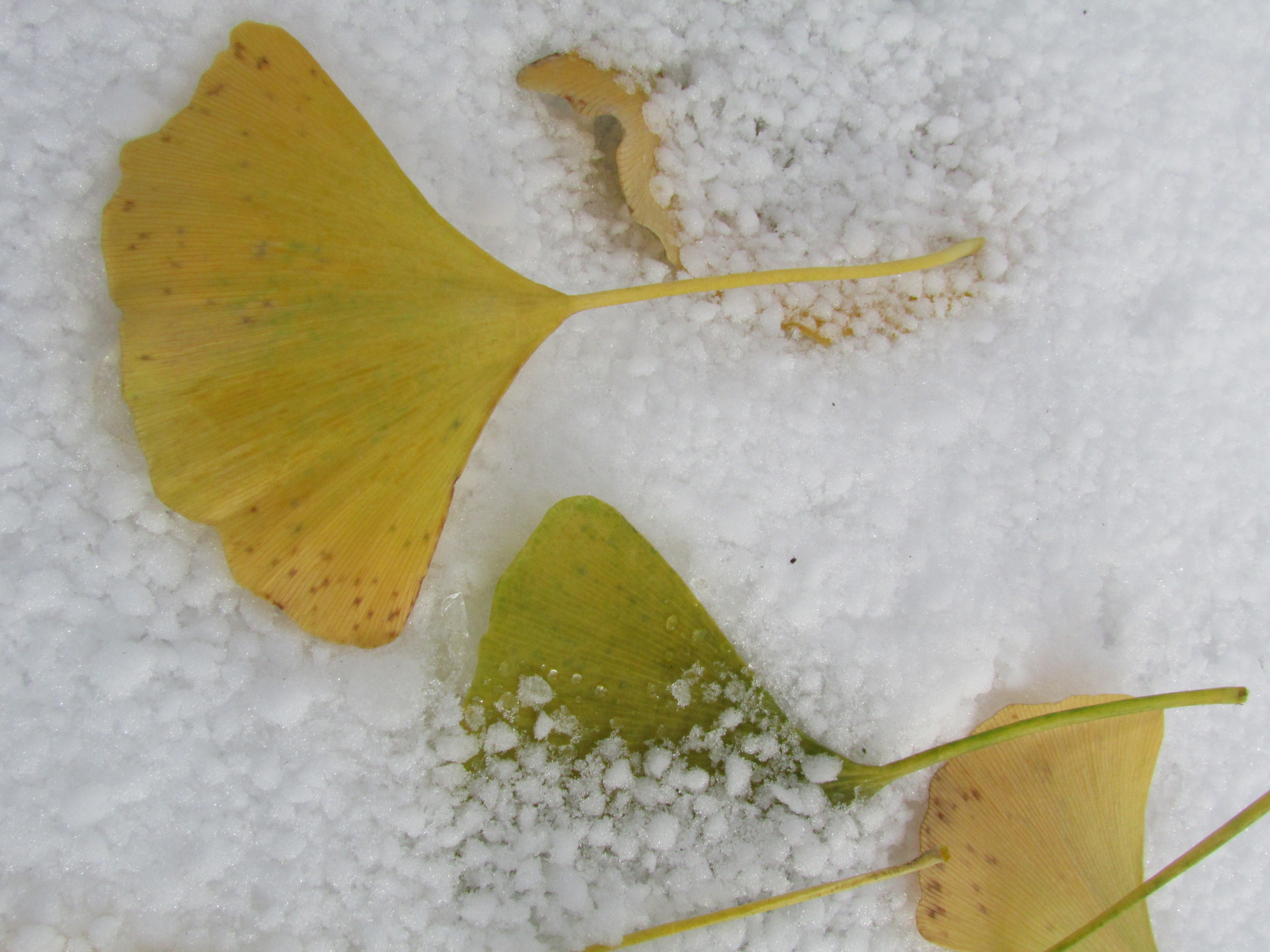Late fall, and things are falling. Leaves, snow, dead tree limbs, shadows, and ginkgo berries. I love trees. Love, love, love. We’ve planted hundreds of trees on the few acres of the farmette, tiny whips of spruce and pine and tulip tree and oak and sugar maple and larch that we nurtured and watered. They’ve grown over the last decade; some are twenty feet tall and higher. One bad winter, when many of the pines had reached at least six to eight feet, the mice and voles under the snow, looking for something to eat, girdled dozens of them. When the snow melted, we found the rings of missing bark, knew the trees were doomed. It was sickening, watching them yellow throughout the summer. And so for years we also wrapped the trees with tree wrap each fall, crawled under the itchy branches of pines to check for vulnerability.
Some previous owner of the farmette was into tree/shrub symmetry. The front yard is framed by a spirea hedge. The house, flanked by identical sycamores. The two side yards have matching catalpas and mock oranges. And behind the house, on either side of the barn, twin ginkgos. Except they’re not really twins. One is male, and the other is a hussy.
Sure, she can be beautiful. She’s a ginkgo, after all, a plant virtually unchanged over at least 270 million years. She’s got elegant fan-shaped leaves that make for fiery fall foliage. But so does guy ginkgo, and he’s blissfully berry-free. The berries, it turns out, reek of butyric acid, the lovely stuff that gives vomit its odor (and also draws ticks to mammal flesh). Some years, more fruit than others. Unlike apples or cherries or peaches, the ginkgo doesn’t flower. The males sport cones; the females, ovules. Ginkgo sex works like this: the pollen from the guy floats over to the hussy. But a ginkgo guy has something called “motile sperm” which means there has to be some water present so the sperm can swim to the ovule. If I could figure out how to stop that swimming, I’d be much happier about my hussy.
So the falling ginkgo berries—orange and stinky—piles of them. The hard ginkgo seed, removed from its flesh, is supposed to be tasty, but I’m afraid I can’t separate it from the smell in my driveway each November. Despite my love of trees, I do every fall consider ruining the symmetry and cutting her down. But ginkgos can live to be over a thousand years old, and so I hesitate. Who isn't a little unpleasant at times? Ginkgo biloba is touted as a memory aid, but sometimes it's more generous to forget.


